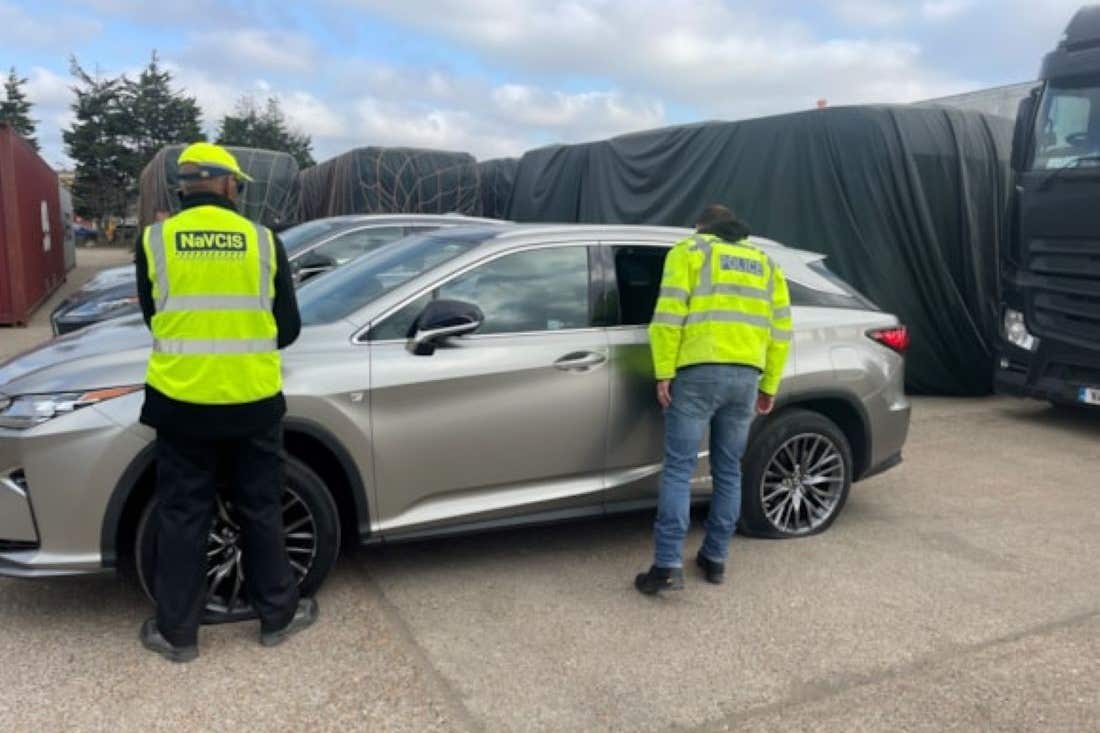Car thieves increasingly stealing keys instead of using scanners, police believe
The trend is emerging as manufacturers work to improve security for keyless entry cars, that have been targeted in so-called relay attacks.

Your support helps us to tell the story
From reproductive rights to climate change to Big Tech, The Independent is on the ground when the story is developing. Whether it's investigating the financials of Elon Musk's pro-Trump PAC or producing our latest documentary, 'The A Word', which shines a light on the American women fighting for reproductive rights, we know how important it is to parse out the facts from the messaging.
At such a critical moment in US history, we need reporters on the ground. Your donation allows us to keep sending journalists to speak to both sides of the story.
The Independent is trusted by Americans across the entire political spectrum. And unlike many other quality news outlets, we choose not to lock Americans out of our reporting and analysis with paywalls. We believe quality journalism should be available to everyone, paid for by those who can afford it.
Your support makes all the difference.Car thieves are increasingly stealing keys instead of using scanners to take keyless entry vehicles as manufacturers have tightened security, police believe.
The National Police Chiefs’ Council said 180 arrests were made for vehicle related crimes including burglary and car key theft during a week-long operation in England and Wales last week.
It described the theft of car keys as “an increasingly common tactic used by criminals”.
Officers believe thieves using scanners, known as relay theft, could be on the decrease as security improves for newer cars.
Jack Cousens, head of roads policy at the AA, said: “Thieves are always trying to get one step ahead of game and will do whatever necessary to get their hands on their target.
“Relay theft remains a common method for vehicles to be stolen, but swiping the keys to get direct access to the car is becoming more popular.
“While there is no single action drivers can take to protect their car or keys, making it as difficult and unappealing as possible is the best course of action.
“Hiding keys well away from the front door, installing a steering lock or installing bollards on a driveway can make thieves think again.”
Automotive security engineer Steve Launchbury, from Thatcham Research, said most car makers have introduced motion-sensor key fobs that go to sleep when idle and don’t respond to the thieves’ equipment.
Thieves are always trying to get one step ahead of game and will do whatever necessary to get their hands on their target
“Vehicle manufacturers have taken proactive steps to address a digital security vulnerability which initially affected all cars with keyless entry systems,” he said.
“Thieves were able to exploit this vulnerability using a technique referred to as a ‘relay attack’.
“Most vehicle manufacturers introduced motion-sensor key fobs, which go to sleep when idle and do not respond to the relayed unlocking signal.
“Efforts to educate drivers on the actions they can take to protect from the relay attack have also been effective.
“These range from using a faraday pouch to store key fobs, including spares, or switching keyless entry fobs off overnight.”
He said owners of older cars should store keys in a faraday pouch, or ask the manufacturer for a motion sensor fob.
“Reports of criminals taking direct action and stealing keys to gain access to a vehicle is a concern which insurers and manufacturers are increasingly aware of.
“This worrying development underscores the need to address the root cause of vehicle theft, organised criminality.”
Thatcham Research is investigating theft pathways in the UK to help authorities identify gangs’ tactics, he said.
The police crackdown saw 316 stolen cars, bikes and lorries recovered, with an estimated value of £4 million.
According to the National Vehicle Crime Intelligence Service (NaVCIS), the number of stolen vehicles identified at UK ports rose 29% in the second quarter of this year.